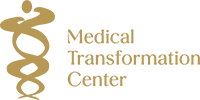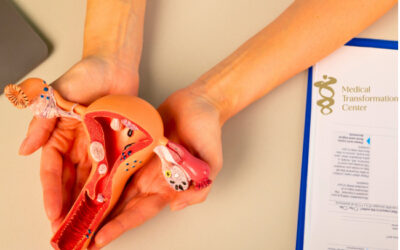Proper hormonal balance is essential when it comes to fertility, and one often-overlooked piece of this puzzle is the thyroid. This small but vital gland can affect nearly every organ in your body, particularly through its involvement in metabolism, energy production, and hormonal regulation. For individuals hoping to conceive, optimal thyroid function can make a significant difference.
Here’s everything you need to know about how the thyroid impacts reproductive health and steps to support fertility through thyroid care.
The Role of Thyroid Hormones in Fertility
The thyroid produces hormones that influence a variety of functions throughout your body. Among the key players are:
- Thyroid-Stimulating Hormone (TSH): Signals the thyroid to produce hormones necessary for proper function.
- Thyroxine (T4): The inactive form of thyroid hormone, which must be converted into the active form.
- Triiodothyronine (T3): The active hormone that regulates metabolism, energy production, and cellular function.
In terms of fertility, these hormones regulate metabolism, influence the menstrual cycle, support ovulation, and ensure healthy sperm production and motility. However, when thyroid hormones are too high or too low, these processes can be disrupted, making conception more difficult.
Through appropriate testing and intervention, thyroid-related barriers to fertility can often be addressed.
Thyroid Dysfunction and Female Infertility
Thyroid imbalances, including hypothyroidism and hyperthyroidism, are commonly linked to female infertility.
Hypothyroidism and Female Fertility
Hypothyroidism occurs when the thyroid doesn’t produce enough hormones. It affects around 2-5% of women of reproductive age and can lead to issues such as:
- Irregular Menstrual Cycles: Thyroid hormones regulate estrogen and progesterone; imbalances can trigger heavy, irregular, or even absent periods.
- Anovulation: Insufficient thyroid function can disrupt ovulation (the process in which an egg is released from an ovary), making conception challenging.
- Luteal Phase Defect: Low hormone levels can shorten the luteal phase, which is the second and final phase of the menstrual cycle, occurring after ovulation. A shortened luteal phase lowers the chances of successful egg implantation.
- Miscarriage Risk: Studies show untreated hypothyroidism increases the likelihood of early pregnancy loss.
- Elevated Prolactin Levels: Hypothyroidism can lead to high prolactin levels, which suppress ovulation and reduce fertility. Prolactin is a hormone produced by the pituitary gland that plays a crucial role in lactation (milk production) and breast development during pregnancy and breastfeeding.
Hyperthyroidism and Female Fertility
Hyperthyroidism, caused by an overactive thyroid, can also interfere with conception. Common issues include:
- Menstrual Irregularities: Lighter, shorter cycles can make ovulation harder to track.
- Ovulatory Dysfunction: Excess thyroid hormones disrupt ovulation.
- Pregnancy Complications: Hyperthyroidism raises the risk of miscarriage, preeclampsia (a serious blood pressure condition that develops during pregnancy), and preterm births where birth occurs when a baby is born before 37 weeks of pregnancy.
Autoimmune Thyroid Disorders and Fertility
Conditions like Hashimoto’s thyroiditis and Graves’ disease, where the immune system targets the thyroid, further complicate fertility. Autoimmune thyroiditis (previously known as thyroid autoimmunity or TAI) can impair hormone production and heighten miscarriage risks, even if there are no overt signs of hypothyroidism. Research shows that autoimmune thyroid conditions may also increase natural killer cell activity, which is linked to reproductive failure.
Thyroid Dysfunction and Male Infertility
The influence of thyroid health isn’t limited to women—it’s essential for male fertility, too. Thyroid imbalances can impact sperm quality, reproductive function, and overall hormonal balance.
Hypothyroidism and Male Fertility
When thyroid hormone levels are too low, men may experience issues like:
- Low Sperm Count and Motility: Impaired thyroid function reduces sperm production and the sperm’s ability to move and travel well.
- Erectile Dysfunction: Poor circulation and inadequate hormone levels impact sexual performance.
- Low Libido: A sluggish thyroid decreases testosterone levels, reducing sexual drive.
- Sperm DNA Fragmentation: Hypothyroidism can lead to oxidative stress that damages sperm DNA. When low thyroid hormone levels occur, sperm may struggle to mature and gain the motility needed to reach an egg.
Hyperthyroidism and Male Fertility
An overactive thyroid can lead to the following fertility challenges in men:
- Decreased Sperm Quality: High thyroid hormones negatively affect morphology (or shape) and motility (or movement).
- Testosterone Imbalances: Lower testosterone impacts both libido and reproductive function.
- Ejaculatory Dysfunction: Hyperthyroidism often causes premature ejaculation, affecting fertility outcomes.
Supporting Thyroid Health for Fertility
Addressing thyroid dysfunction is a vital component of improving fertility. At Medical Transformation Center, we use a comprehensive and personalized approach to optimize thyroid health and support reproductive outcomes.
Comprehensive Thyroid Testing
To gain a true picture of thyroid health, more than just TSH levels need to be assessed. Our approach includes detailed thyroid testing, such as:
- TSH, Free T3, Free T4: These markers provide a clearer understanding of thyroid function in the context of fertility.
- Thyroid Antibodies: Identifies autoimmune disorders like Hashimoto’s and Graves’.
- Reverse T3: Detects inefficiencies in converting T4 into its active form.
- Nutrient Testing: Ensures essential thyroid-supporting nutrients like selenium, zinc, and iodine are sufficient.
Personalized Treatment Plans
Our integrative care model addresses thyroid imbalances with precision and care, including:
- Peptide Therapies: Peptides can help regulate hormones, modulate immunity, and promote cellular health—helpful for autoimmune thyroid conditions.
- Nutritional Support: A diet rich in anti-inflammatory foods and key nutrients like selenium, zinc, and iodine fosters thyroid health.
- Targeted Supplements: Specialized formulas, such as RegenaThyroidSupport,for hypothyroidism, can enhance thyroid function and reduce oxidative stress.
- Stress Management: Chronic stress disrupts hormone balance. Techniques such as mindfulness and adequate sleep are crucial.
- Detoxification Programs: Addresses environmental toxins that can interfere with thyroid function.
- Bioidentical Hormone Therapy: Tailored hormone replacement therapy restores balance for persistent cases.
Monitoring Progress
It’s important to receive ongoing assessments to ensure treatment plans are effective, with adjustments made based on evolving thyroid and reproductive health.
The Bottom Line
Thyroid health plays a crucial, often underestimated, role in fertility. Whether through hormonal balance, regulating ovulation, or sperm health, a well-functioning thyroid is essential for conception and healthy pregnancies.
If you suspect thyroid function may be impacting your fertility, comprehensive care is available. In Louisville, reach out to Medical Transformation Center today to begin your personalized plan to support thyroid health and take the next step toward growing your family.





